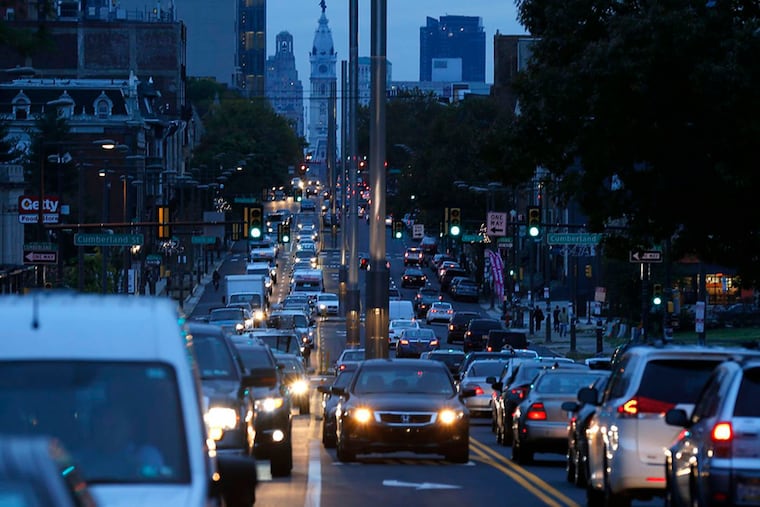Philadelphia can do more to fight traffic congestion | Opinion
One of the most obvious impacts of Philly's rising success is increased congestion, particularly on Center City streets.

Philadelphia’s population growth and expanding economic vitality is a testament to city leadership bringing stakeholders together to work through obstacles to progress. Our recent selection by National Geographic Magazine as one of the top 25 “Best Trips” and must-see destinations in the world for 2020 reflects that commitment. There are, however, critical issues we must address to continue attracting new residents, visitors, and businesses.
One of the most obvious impacts of our success is increased congestion, particularly on Center City streets. The advent of ride-share services, increased online shopping, and the delivery vehicles necessary to that process, alongside expanding use of bicycles and scooters, all compete for limited on-street space. The resulting obstacles to the free flow of traffic can create hazardous conditions for vehicles, bicycles, as well as pedestrians. A June 2019 study by Econsult Solutions estimates that 9.7 million hours are lost by buses and cars sitting in traffic each year. In addition, the report estimated that 15,700 potential jobs and $1.08 billion in potential earnings are associated with lost productivity from congestion.
As legal parking spaces at the curb get more and more difficult to find, illegal parking increases. Based on our count at the Philadelphia Parking Authority, truck safety violations now exceed 12,000 a month, a 20% increase since 2017. Most tickets issued to delivery trucks are not for parking too long, but for congestion-causing safety violations such as parking in bus zones, crosswalks, no stopping, double parking, blocking driveways, blocking mass transit, parking prohibited, parking in spaces reserved for people with disabilities, and parking in front of fire hydrants.
The PPA has implemented a number of new initiatives aimed to address congestion:
Effective Sept. 1, contractor parking placards are not valid in delivery zones. By freeing these spaces for their intended purpose, delivery trucks have a safe, legal option that does not impede traffic or create hazardous conditions.
We have requested that City Council consider increased fines for congestion-related violations. Dialogue between the PPA and certain delivery companies confirmed the pervasive attitude that violations are just “the cost of doing business” in Center City. The cost of congestion is significantly greater than the cost of the violation.
The PPA has issued a request for proposal for the creation of an app to locate available truck loading zones in real time. Technology can be deployed to improve the turnover of loading zones and appraise users of available spaces, reducing pollution resulting from circling looking for a space or double parking creating additional safety hazards.
We will be asking City Council to consider establishing a fee for the use of loading zones, like New York City and many other cities have. The fee will stimulate the turnover of the spaces, leading to broader availability. The request will also include variable rates to encourage off-peak deliveries.
The PPA has advocated in Harrisburg for state authority to allow Philadelphia, pursuant to local ordinance, to use cameras for congestion-related enforcement. Areas that should be enforced by camera include bus zones, travel lanes, corner clearances, crosswalks, delivery zones, and noncurb pickups and drop-offs by TNC drivers. Currently, the law allows for enforcement only upon the observation of an officer. Cameras allow a more cost-efficient alternative for certain violations.
The PPA has partnered with the mayor, police, and SEPTA to create a focused bus zone enforcement plan during the summer and fall. This effort resulted in a noticeable reduction in bus delays.
Acknowledging that multiple groups each have a valid claim of access to our streets is a beginning. Applying technology where we can, as well as adjusting fees and fines coupled with appropriate enforcement, will move us forward. First, however, we need to clearly articulate the consequences of bad parking habits on the quality of life for residents, businesses, tourists, and other visitors. We welcome feedback from the public as these plans develop.
Scott Petri is the executive director of the Philadelphia Parking Authority.